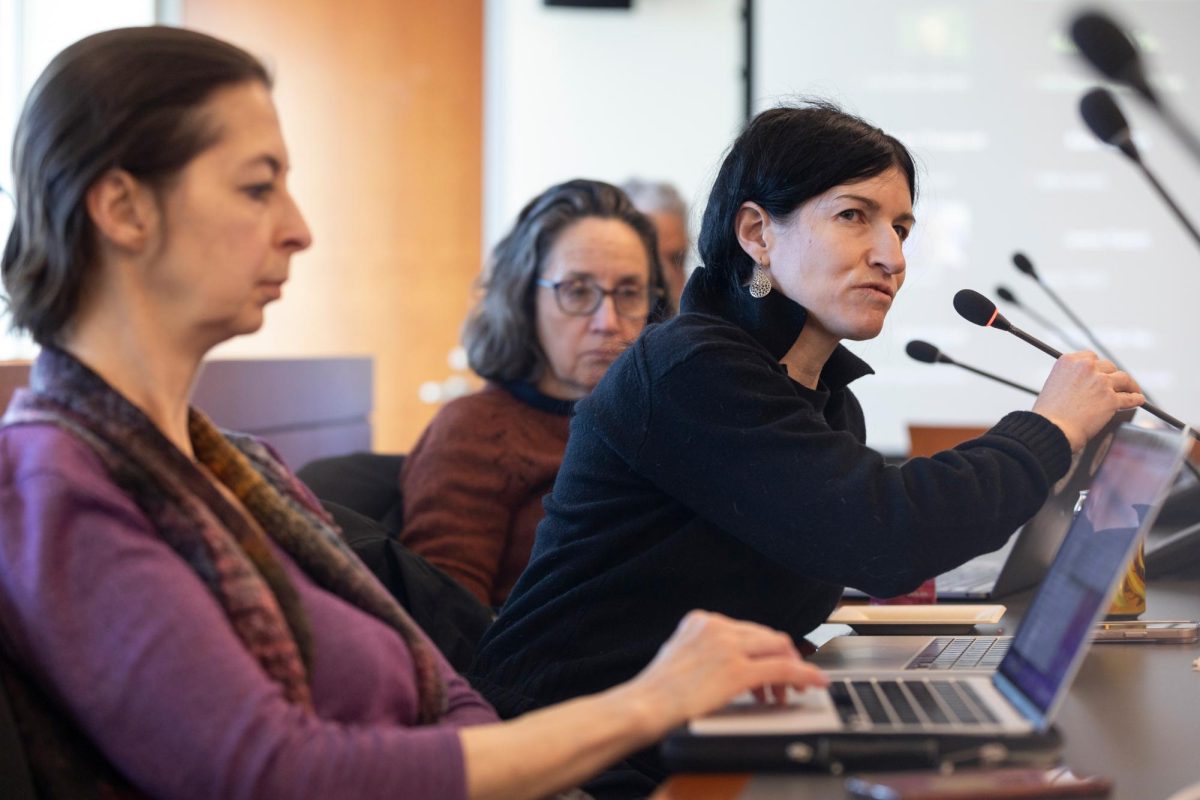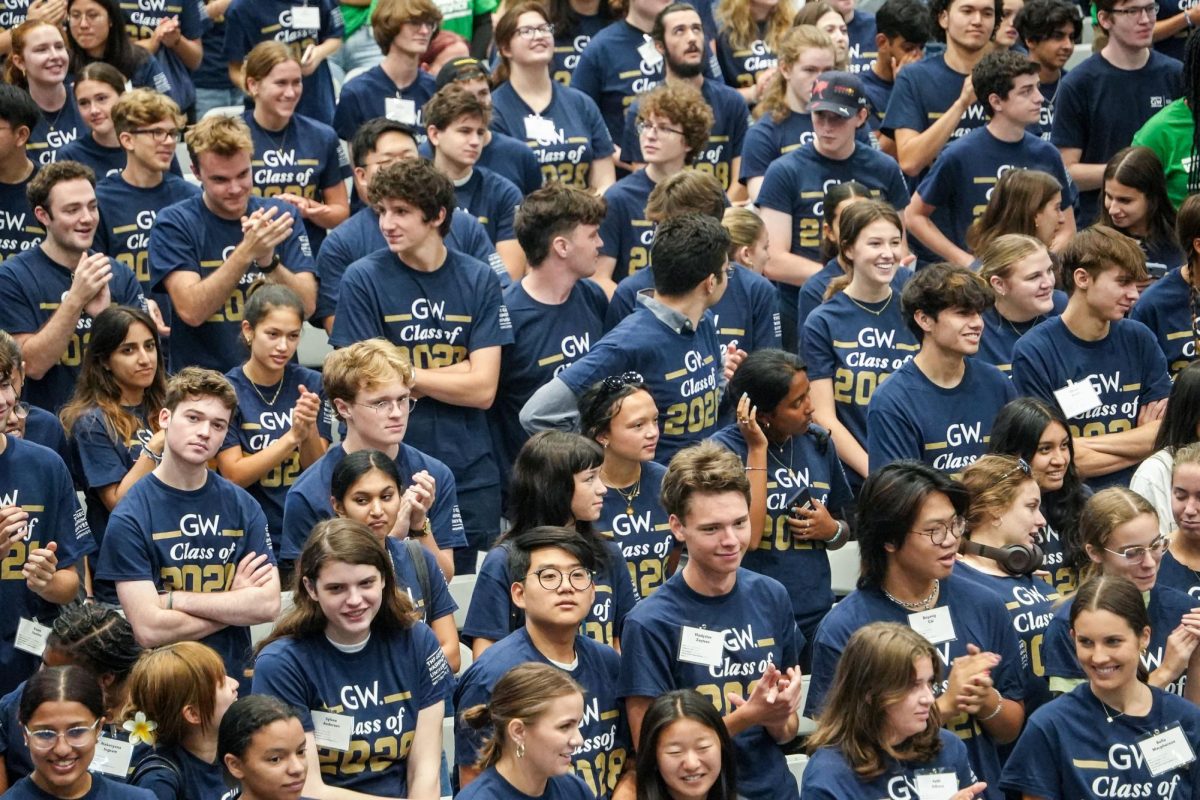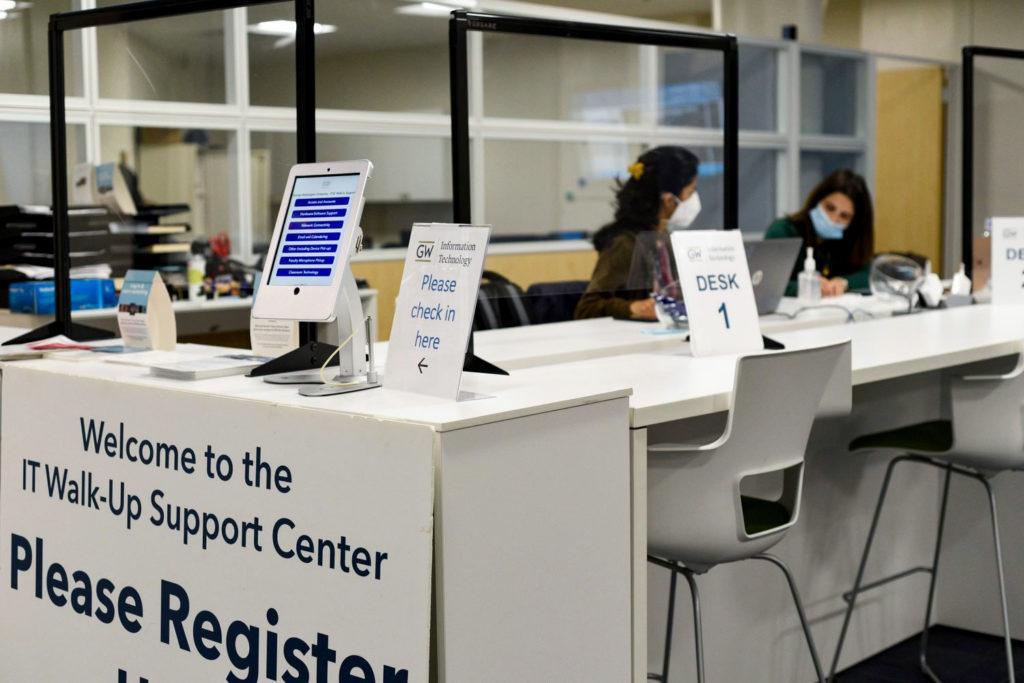The number of students studying across GW’s schools has steadily increased over the last decade, indicating a growing, University-wide interest in cross-disciplinary studies, according to the annual core indicators report presented at a Faculty Senate meeting earlier this month.
The report states 1,870 students studied across multiple schools in 2022, a 136 percent increase from 791 students in 2012 – a record-high number of undergraduates participating in interdisciplinary studies. Experts said interdisciplinary degrees prepare students for a workforce where a diverse skillset is required to succeed.
“The larger point, of course, is that the indicators highlight that our students are appreciating the opportunity to build an academic program of study that is cross-disciplinary and prepares them for future career and professional aspirations,” Provost Chris Bracey said at the meeting.
A total of 4.3 percent of undergraduates had two majors across different schools in 2022, a slight decline from 4.5 percent in 2021. The percentage had made a steady climb since 2012 when only 2.3 percent of undergraduate students majored in two different schools.
In 2022, 428 undergraduate students double majored across schools, a 92 percent increase from 223 students in 2012. The number of undergraduate students with a major in one school and a minor in another increased by 154 percent from 2012 to 2022, jumping from 568 to 1,442, according to the report.
Bracey said students most commonly major between the Elliott School of International Affairs and the Columbian College of Arts and Sciences.
Experts in higher education said interdisciplinary students develop a wide breadth of skills that increase their career opportunities. They said the large number of credits that universities and accreditation institutions require for degrees could discourage students from interdisciplinary studies.
Mary Churchill, the program director of higher education administration at Boston University’s Wheelock School of Education and Human Development, said interdisciplinary degrees encourage students to pursue their varying interests and prepare them for the “real world,” where interdisciplinary skills are required in the workforce.
“When you look at employer surveys of what they’re looking for when they hire, they’re not looking for an econ major or a sociology major,” Churchill said. “They’re looking for someone who has a combination of skills that often comes across disciplines.”
Robert Toutkoushian, a professor of higher education at the University of Georgia and associate director of the school’s McBee Institute of Higher Education, said the financial implications of double majoring that come from registering for more course requirements and tacking on years of study can deter students who would require financial assistance to do so.
“In general, this would be a good thing for some students to do, provided that they have the time and money to do it,” he said. “Not everyone is in this situation, however.”
Students said they were easily able to declare new majors and minors, balance their coursework between them and engage in interdisciplinary studies to learn “hard skills” they can apply to their primary field of interest.
Lily Vassalo, a senior majoring in international affairs and business, said she has a broader view of the world because she is not limited to one “category” of study. She said she is able to apply her quantitative analysis skills acquired through the business school to her academics at the Elliott School.
“At the end of the day, everything is a business and everything in our world revolves around money to a certain extent, so it’s been useful to understand that,” she said.
Vassalo said while it is difficult to balance her coursework, it is “doable.” She said she takes at least 18 credits every semester to meet her degree requirements.
Students currently registered for more than 18 credits are charged $1,995 for each credit hour exceeding 18. The cost will increase to $2,080 per credit hour beginning this summer.
Julian Anderson, a senior majoring in international affairs and economics, said he got involved with student organizations related to his majors, including the Undergraduate Economics Society and professional international affairs fraternity Sigma Iota Rho. He anticipates a more flexible career path because he is able to network with people within different disciplines.
Anderson said that while the benefits of double majoring outweigh the negatives, the “hefty” course load that he had to take for his second major was part of the reason he was unable to study abroad.
“I didn’t get the chance in part because of COVID,” he said. “But the other part was because pursuing a double major added probably five to six more classes to my load.”
Soneha Datta, a freshman majoring in public health and fine arts, said while she can balance her coursework and has equal levels of academic opportunity in her majors, she has struggled to find guidance from either school when building her course plan.
“I remember I had three advisers for the first two weeks, and ultimately, they just kept sending me to each other back and forth,” she said. “I was the one that had to sit down and try and figure out stuff.”
Alfredo Granados, a junior majoring in international affairs and economics, said he receives “great help” from professors of both majors, but he has noticed differences in size and opportunities between the departments. He said the economics department, while smaller than the Elliott School, sends “very helpful” emails from professionals offering internship and fellowship opportunities.
Manuel Blanco, a sophomore double majoring in international affairs and geography, said expanding his studies into other schools has given him a “broader look” at the world when it comes to geography, politics and culture.
“Geography and knowing the culture of different people and the places that they reside is super important to applying it to what I know about the politics that govern them,” he said.











